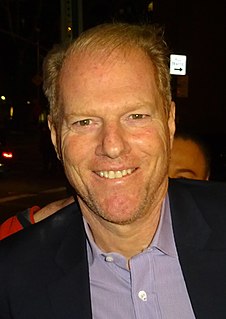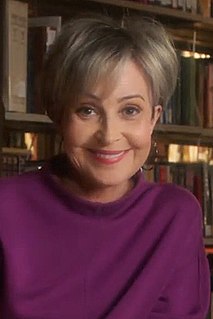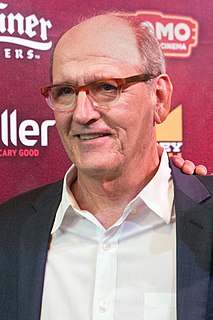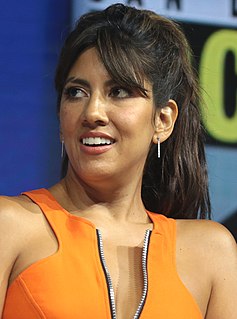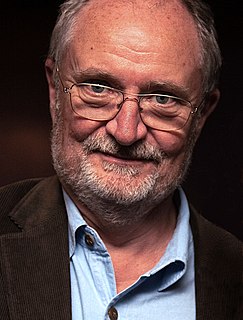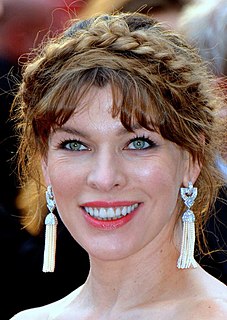A Quote by Colm Meaney
Well, I've always been a character actor, you know, and you always get your share of character actors who are bad guys. So it never surprises me. And if it's good writing, you can find your way into the part well enough.
Related Quotes
Actors always direct themselves. A good actor shows up onset ready, especially in television, and you've done your homework and you know your character. The director may have some variation on what you're thinking or they may have a different interpretation of the scene. So you come prepared to shoot and you've given yourself notes. In television, it may be the first time you're meeting this director and you've been living in this character's skin for a couple of years. It's always great to have fresh perspective and fresh insight, but no one knows your character better than you do.
There should always be that leeway because if you think of your character as sort of absolutely fixed, then you just try and find actors to come and do exactly that thing, then you're not gonna be working with that actor's own set of internal impulses and who they are, so the best work is always a coming together of the actor and the character.
Every director is always directing around the play. If you have an actor who really doesn't get the character well enough, you have to direct the play around that character. You have to make choices with that actor. If you have an actor that really doesn't get the role and has certain visions of the role, sometimes you have to direct around that actor.
When I'm writing, I try to have the mask of my character on as I'm walking through the world. When I'm not at my desk, the rest of the time, I try to stay in that character and see the world the way that character would It's almost like method acting in a way — keeping the character close the way the actor keeps a script close and always tries to be in character.
If you're writing a bi character, did you look at a lot of bi actors for the role? Did you really go and find people that identified as queer? If you did, then great, and if you didn't find anyone you liked in that pool, well, that's surprising. If you write a character that's trans, the time is now - cast a trans actor.
Also, worldbuilding touches all aspects of your story. It touches plot and character as well. If you don't know the culture your character comes from, how can you know what he's really like? You must know your characters on a much deeper level than you would if you just shrugged your way into a cookie cutter fantasy world.
As a young actor, I was advised to bide my time. Back then, there weren't good roles for someone like me. There were handsome leading men and character actors for smaller supporting roles. But I was told to hang in there, and it was good advice. We're all character actors now. Even a handsome man is a character actor at my age.
There was never a moment where I was intentionally cribbing from another actor. More so, I grew up watching other actors design the character of The Joker to me, and obviously, the part was paying tribute to The Joker, and so I wanted to, you know, perform it to the best of my abilities in a way that it seemed to be paying homage to the character.
It makes it easier, if you can't do an American accent. I don't know. It's different. I played a character in Never Let Me Go where the script for my character was very sparse, and I enjoyed it. With Never Let Me Go, I had a whole book written from my character's point of view, so I always knew where I was. But, with Ryan [Gosling], it was just easy. He's such a brilliant actor and he is so prepared. He doesn't have to warm himself up to be in a scene. He's just in it. It draws you in, in a way.

